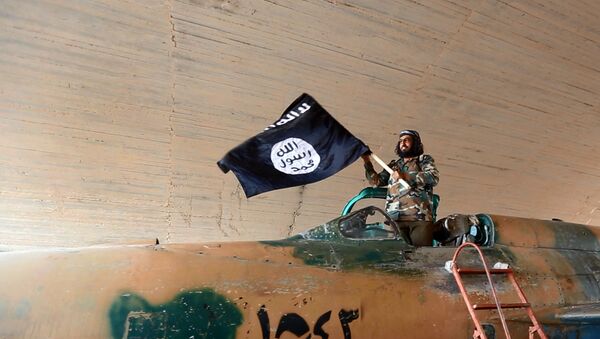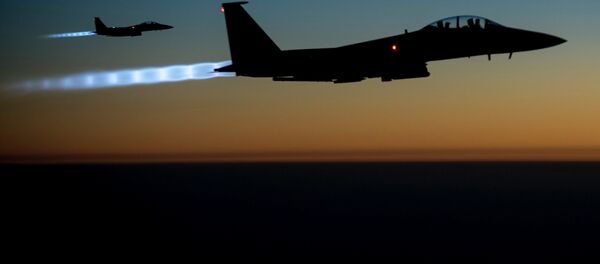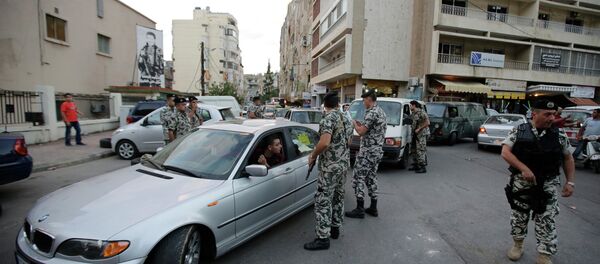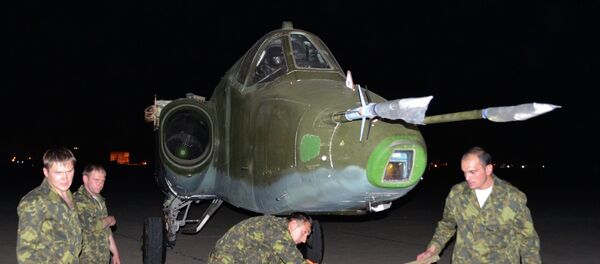The Islamic State currently poses a great danger not only to both Iraq and Syria, but also to stability in the entire Middle East. The increasing influence of the Islamist group could be expressed using the ancient Roman saying attributed to statesman Marcus Tullius Cicero: "the sinews of war are infinite money."
This very reason encouraged Russia this week to submit a draft resolution to the UN Security Council, to divert or stop the flow of money flow to IS. However, exact steps to cut the sinews out of the IS economy have not been clearly identified.
'DONATIONS' AND OIL SMUGGLING
"Wealthy private donors continue to wire funds to IS. It was recently reported that these funds actually go through the United States on occasion," Renad Mansour, former adviser to Iraqi Kurdistan’s regional government told Sputnik, adding that Lebanon and Jordan are also used as 'in-between' countries.
Lina Khatib, the director of the Carnegie Middle East Center, said that the Islamic State receives sums from non-state actors "mainly from the Gulf." She also added that the system of funding is necessarily complex and involves legal devices using so-called dummy charities.
"Middlemen are finding it more difficult to smuggle the oil, which has fallen in price. There is no doubt, then, that the oil income has decreased (probably by half)," Mansour said.
At the same time, Khatib assured Sputnik that "the price of IS-produced oil on the black market has not been affected by the global oil price drop."
KIDNAPPINGS AND EXTORTIONS
On Friday, a 26-year-old female aid worker from the United States was reportedly killed in an unconfirmed Jordanian airstrike. She was held hostage for 18 months with a $6 million ransom demand. A number of British, Japanese, US, Iraqi, Syrian and other nationals have also been kidnapped through the existence of the terrorist group.
"Some countries have paid for the release of hostages," Mansour said, while Khatib noted that ransoms for hostages help "generate significant income."
The wages extortion is a less well known source of income than the above-mentioned three. Renad Mansour explained that Iraq pays "the salaries of its civil servants from the national budget, and many of these civil servants live in under Islamic State control. As such, they continue to receive wages (and even retirement for some)."
The expert added that the money could "end up going towards IS."
ISLAMIC STATE VS. AL-QAEDA: FUNDING MATTERS
The world’s most notorious global Islamist organization before the appearance of the Islamic State was Al-Qaeda. Despite seemingly similar goals and ideology these two differ greatly, particularly in funding.
"Under the mindset of being a state, IS is trying to become economically independent. This is why an emphasis is put on exporting oil, taxation, extortion, and kidnappings – generally, avenues of income that are not dependent on another party," Mansour told Sputnik.
Khatib agreed with the expert, saying that IS makes donor funding "only supplementary to its core income."
WHAT SHOULD BE DONE?
"Closer monitoring of the activities of international charitable and aid organizations as well as stricter procedures related to money laundering in the Middle East are needed to try to halt IS's financial transactions," the Carnegie Middle East Center director said.
The former adviser to Iraq's Kurdistan regional government outlined two major steps to choke the IS economy. The first step would be to monitor and crack down "on money laundered to the IS" and finding "the origins of such payments."
The second step, according to Mansour, has to do with oil smuggling networks as "they remain key to IS’s unofficial economy."
Given that no particularly successful advancements have been made since June 2014, when IS proclaimed a caliphate on the captured territories, these steps are not simple to execute.






